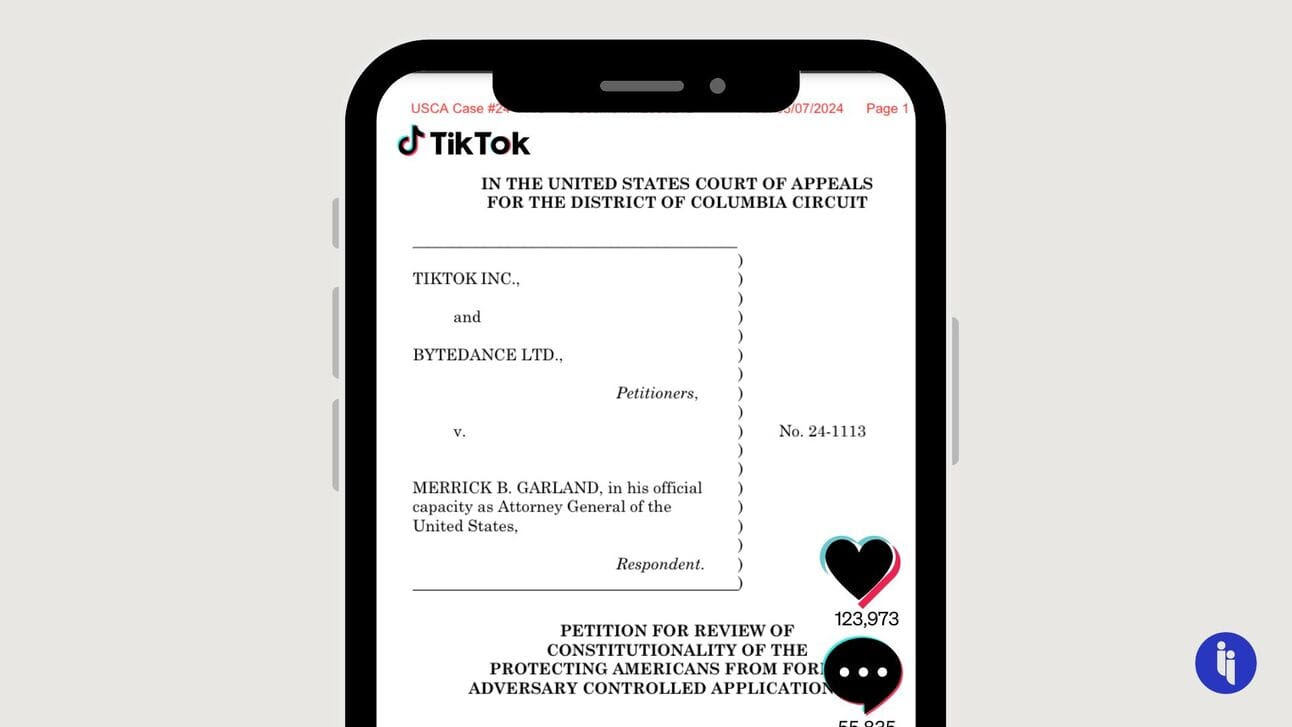TikTok and its China-based parent company ByteDance have filed a lawsuit against the US government – it’s an attempt to block a divest-or-ban order that could spell the end of the social media giant’s presence in the US.
President Joe Biden signed the bipartisan bill into law last month, ordering ByteDance to sell TikTok within 270 days or face a ban in its largest market, the US.
Lawmakers from both parties pushed the legislation on national security grounds: companies in China are required by wide-ranging laws to comply with national security directives. So that means the Chinese Communist Party (CCP) could:
Stay on top of your world from inside your inbox.
Subscribe for free today and receive way much more insights.
Trusted by 134,000+ subscribers
No spam. No noise. Unsubscribe any time.
- Access the personal data of TikTok’s 170 million US users, helping shape Beijing’s strategy towards the US, and/or
- Push content which suits that strategy, like accentuating divisions or suppressing ideas the CCP doesn’t like.
TikTok’s Singapore-based CEO sought to defend the firm before Congress last year but, while his performance was seen as a slam dunk by many on TikTok, some of his inconclusive answers left congressmembers even more uneasy.
And as the divest-or-ban bill then took shape, TikTok started encouraging its US users to lobby Congress, in turn merely confirming what many lawmakers feared about the CCP’s possible reach. So the bill passed 360 to 58.
Now, TikTok’s last chance lies with the US justice system.
In a petition filed on Tuesday with the Court of Appeals for the District of Columbia Circuit, TikTok and Bytedance argue that:
- The legislation represents a flat-out ban on TikTok and is therefore “obviously unconstitutional”
- The bill is based merely on the “hypothetical possibility that TikTok could be misused in the future, without citing specific evidence”
- TikTok has already invested $2B to safeguard US user data, and even agreed to a “shut-down option” if the US government detects breaches
- The law singles out TikTok “without any reason for doing so”
- It violates free speech rights protected by the First Amendment
- It would equate to the “unlawful taking of private property”, and
- Selling TikTok “is simply not possible: not commercially, not technologically, not legally.”
So what’s next?
ByteDance has stated it has no plans to sell and, in a reference to China’s own tech export control laws, the suit claims “the Chinese government has made clear that it would not permit a divestment of the recommendation engine that is a key to the success of TikTok in the United States.”
So for now, TikTok’s future depends on a legal battle that looks destined for the Supreme Court, where there are no certainties.
For what it’s worth, a Yale professor doesn’t like TikTok’s chances: “A regulation that is content-neutral will generally be upheld if it leaves alternative means of expression available […]. Other apps exist, and if TikTok goes, more will spring up.”
Analysts at Bloomberg tend to agree, giving TikTok a 30% chance of winning.
INTRIGUE’S TAKE
With or without TikTok, Americans will still be able to say what they want. The issue is that lawmakers have decided they’d prefer this right wasn’t subject to the whims of a major free speech opponent and autocratic rival.
Still, as US courts grapple with yet another historic decision, it’s worth reflecting on some of the costs involved in upholding national security:
- TikTok is a source of community, income, and even news for millions of Americans (particularly younger folks)
- It’s a source of wealth for major investors like General Atlantic, Susquehanna and Sequoia Capital, and
- It’s a source of connection for lawmakers (including many who backed the bill) seeking to communicate with voters.
But that’s the thing about national security – it tends to be upstream of everything else. And so long as TikTok theoretically answers to the CCP, the same points that make the platform so valuable will also leave the US feeling vulnerable.
Meanwhile, are there any interested US buyers? Yes. But given China’s likely refusal to allow the sale of TikTok’s underlying algorithm, it’d be like buying a Michelin-starred restaurant without the chef. Sure, there’s still value (customers, branding, infrastructure etc), but a buyer would need to replace or reverse-engineer the recipe. And interestingly, friends in Silicon Valley tell us this is doable (if not happening already).
So all that to say… if Bytedance loses this case and changes its tune, the commercial and technological hurdles to a sale aren’t insurmountable.
Also worth noting:
- Several countries have already banned TikTok, including India, Afghanistan and Nepal.
- Last year, ByteDance made around $120B in revenue (up from $80B), making it one of the fastest-growing tech companies in the world.







